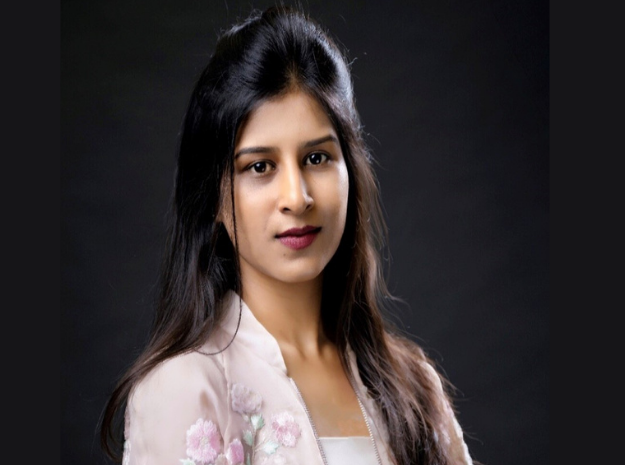
- Programme studied: Global Master's in Management
- Year of Graduation: 2019
- LinkedIn profile
Meet our May Alum of the Month, Keerthi Reddy Kotta. Keerthi has been recognised on the Forbes India 30 Under 30 list for her work in Healthcare. She is the Co-Founder and COO at StaTwig, a startup focused on solving the problem of global wastage in vaccines caused due to the inefficiencies in supply chain, and is currently helping to distribute COVID-19 vaccinations across the world.
How did LSE make an impact on you?
LSE was a huge shift of pace in my life and the two years I spent there showed me a new perspective on everything which completely changed me as a person. Studying at LSE ensured that I gained knowledge in diverse fields, therefore creating a pathway for my future. I didn’t just gain theoretical knowledge, but LSE taught me so many other skills on communication and leadership. Undertaking modules like Strategy and Management, and Dr Connson Locke’s Organisational Behaviour had a big influence on me and my thinking and subsequently became incredibly useful in my career.
There was always something to learn from the speakers that visited the School. My personal favourite was a talk by Farrah Storr. She talked about her journey, and about how every person goes through a discomfort zone in their life. She shared advice on how to break through that phase and go on to achieve what you want. I was in the discomfort zone in my initial days at LSE, and this gave me a boost of confidence that I needed, that I wasn’t alone and that I could break through it.
Tell us about your current role.
I was always interested in supply chain and healthcare, under which StaTwig rightly falls. StaTwig focuses on reducing vaccine wastage and provides real time data on vaccines in transit. This is a global problem, which requires effective solutions. With every vaccine we can preserve, we are saving more lives.
My company is currently working with state governments in India along with some of the airports, establishing relationships with the vaccine manufacturers, particularly in Hyderabad, which holds the biggest vaccine manufacturer in India. Eventually, we are hoping to cover all of India. We are also working closely with UNICEF. StaTwig is also part of the Global Innovators Network for The World Economic, with our vaccine tracking system being selected as part of a programme they ran last year.
You have recently featured on the Forbes 30 Under 30 India 2021 list in the Healthcare category. Can you tell us more about how StaTwig is impacting the world?
I was very excited to be featured, and at the same time very shocked. I am so proud to be part of a company that ensures the COVID-19 vaccine reaches millions more people. On average, 25 out of 100 vaccines get spoilt during transit due to high humidity or temperature changes and our product, Vaccineledger is creating a huge social and environmental impact by ensuring the highest immunisation rate and least vaccine wastage.
I want the entire world to get vaccinated, and our product ensures that many more lives are saved. It is always a great feeling to know that your work is resulting in impactful change!
Are there any exciting projects you are currently working on that you can share with us?
As well as vaccine supply chains, we are also working with state governments on their public distribution system for food grains. Our product, the Foodledger ensure that there are continuous quality checks on the produce, before they are sent over to the beneficiaries, through a track and trace mechanism.
What is the greatest challenge you have had to overcome in your career?
The biggest challenge would definitely be the impact of COVID-19. I think this has been a very tough situation on everybody, there is so much change happening around us. It was quite a challenging situation where we had to work towards an immediate purpose under a short time frame. Of course, it paid off and now our solution is being used across India.
This year we are celebrating the 125th anniversary of LSE. What is your fondest memory whilst you were studying with us?
In my second year, I spent a lot of time working on a business project with the company Jo Malone and this was by far the best part of my studies at LSE. I got really close to my project team during the four-month period. We went on lots of shopping sprees trying to find perfumes and spent way too much time in Selfridges! It was a welcome change from sitting in class and listening to lectures.
Reflecting back, I recall starting LSE as a nervous kid with a bunch of strangers and then graduating with a group of best friends. That is what I am going to cherish forever.